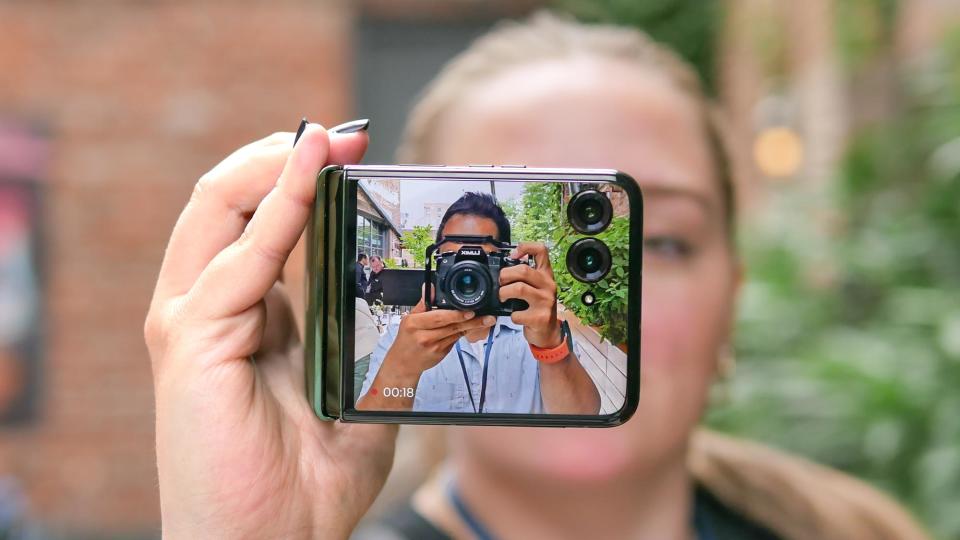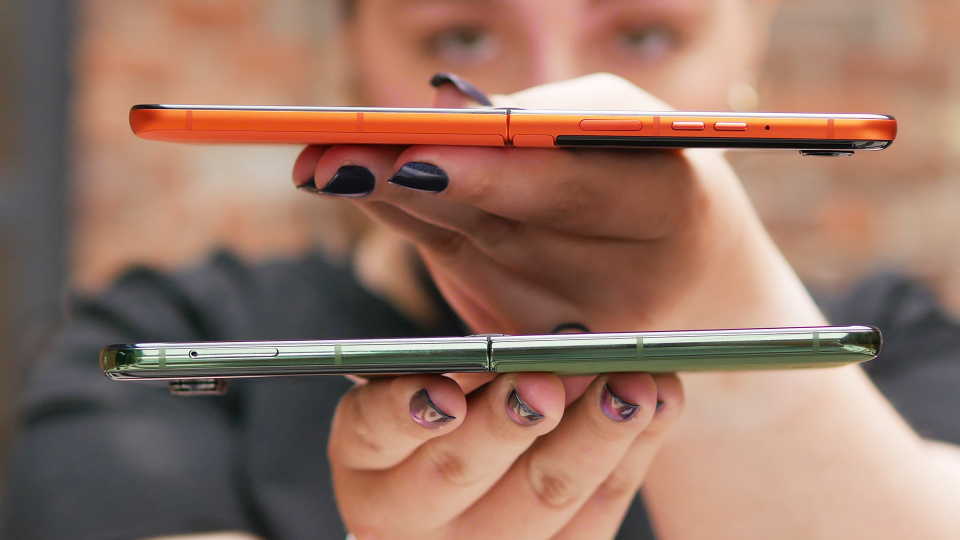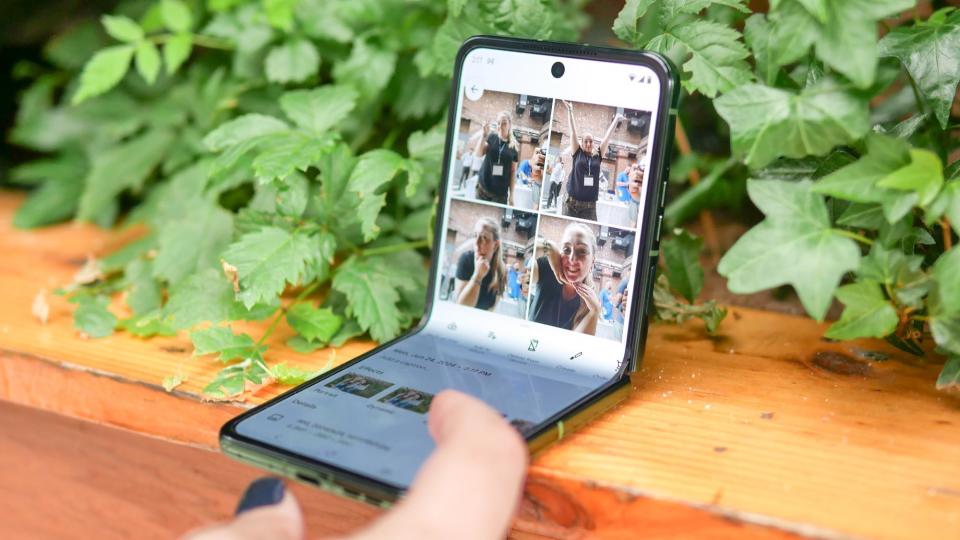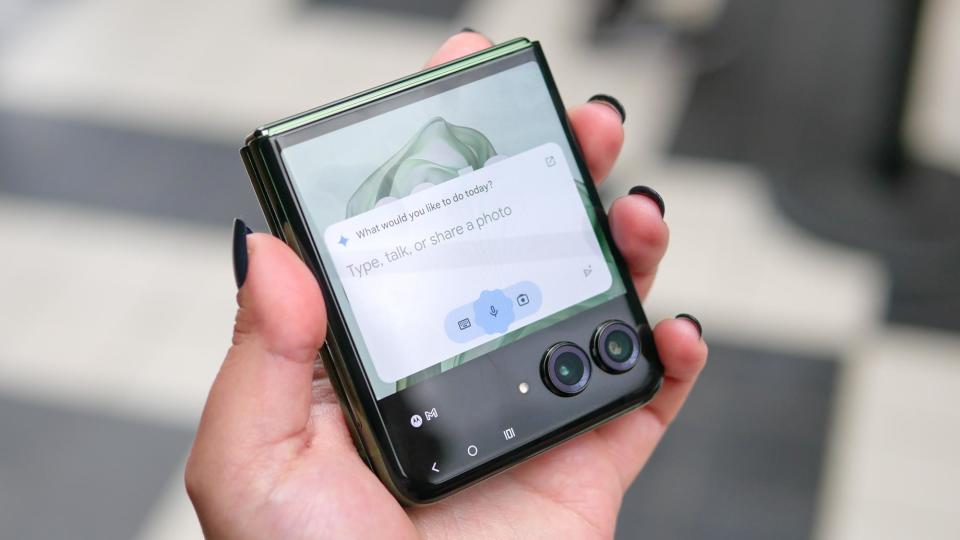Earlier this week Motorola announced its brand new generation of foldables, including the Motorola Razr Plus 2024. Like last year the flagship foldable comes with two main camera lenses, with some notable changes — the most notable of which is swapping the ultrawide angle camera lens for a telephoto shooter.
This is a controversial choice for some people. In Our Motorola Razr Plus 2024 hands-on, my colleague John Velasco expressed his disappointment in the loss of the ultrawide camera lens, particularly with how it can help with videography. I’m of a different mind, though. In fact I wish more phones would offer a telephoto lens and prioritize real zoom — even though I know that’s not going to happen.
For me, zoom trumps ultrawide

For the past few generations I’ve gravitated towards premium handsets for a variety of reasons. The main reason is that I spent so long with very mediocre camera phones, so I’m happy to pay more for the ability to take better photos. Part of that also involves taking better photos at long distances.
In recent years there’s been a lot of crossover between the best cheap phones and the best camera phones, but it’s rare to find anything but a premium handset with a telephoto lens.
Admittedly digital zoom has come a long way over the last few years, especially with the recent push to add additional AI features on phones. But it still can’t quite capture the performance of optical magnification. I found this when comparing the cameras of the Pixel 6 Pro (my current day-to-day phone) and the new Pixel 8a. In my comparison the only category that was a clear win for the Pixel 6 Pro was the zoomed in shots. The Pixel 8a, despite its 2 ½ year hardware advantage and dominance in most other categories, just couldn’t match the photo quality over long distances.
A lot of my photography involves taking photos of animals or specific objects, and in those situations I find that being able to zoom in is incredibly convenient. Obviously I want the final photo to look as good as humanly possible. Having that extra physical zoom makes a huge impact, in my experience. Far more than having an ultrawide angle lens does in the situations where I’d use that — mostly landscapes and buildings that end up with that weird distortion at the edges around half the time.
Everyone has their own preference, and in an ideal world we wouldn’t have to spend a few hundred dollars more to get both lenses on our phones. But, if given a choice, I would always pick a phone with a telephoto lens over one with an ultrawide angle lens. I’m clearly not the only one either, because Motorola claims people asked for the Razr Plus 2024 to swap lenses. And I’m guessing their teams have a better understanding of what people want more than me.
Unfortunately the Razr Plus 2024 is an exception, and it’s almost never a case of deciding between the two, all thanks to the very nature of telephoto lenses.
Telephoto lenses need space


There are a bunch of issues with telephoto camera lenses that mean they’re either not that common, or the level of optical zoom isn’t as good as we’d like it to be. The latter of the two is easy to explain, because it’s primarily a space issue. An optical zooming system found in a telephoto lens needs a certain amount of space to function properly, and the longer the zoom, the more space is required.
Traditional telephoto lenses are horizontal, which means they’re restricted by space and the thickness of the phone. If the choice is a thin phone with limited optical zoom or a fat phone that can zoom in much further, most companies will choose the thin option.
There are ways to get past this issue that various phone makers have employed. The most common is the periscope lens, which stacks the telephoto shooter vertically and uses a prism to reflect incoming light from the horizontal-facing lens — just like a submarine’s periscope. This doesn’t solve the space issue, it just shifts it into a different direction. It solves the thickness issue, but it means phone makers still need to make space.
Then you have Apple’s tetraprism lens. This system utilizes vertical components and prisms to reflect light, just like a periscope lens. But by exploiting multiple prisms, Apple’s been able to compress the component while still offering 5x optical zoom. Unfortunately that still requires a lot of space, which is why the iPhone 15 Pro missed out, and is only ever going to be available on Apple devices.
The Motorola Razr Plus 2024 is not a huge phone. It’s fairly thin, at just 0.27-inches thick when unfolded, plus the amount of internal space is limited by the hinge in the middle of the phone. Getting a better telephoto lens was going to be a challenge, and it’s one that other phones may not want to attempt. Especially if they’re on the smaller side.
But while space can be a concern, the main issue always comes down to something else — money.
Price is the key factor


In the end it all comes down to money. Releasing a new phone is balancing the expectations of the consumer with the amount of money that can be made. Lean too hard on the upgrades, and either price goes up or your profits go down. But play it too safe and you end up with a new phone that looks virtually indistinguishable from its predecessor — like the iPhone 14.
Buying a cheap phone doesn’t mean you’re stuck with a bad phone. The best cheap phones offer a phenomenal amount for the money, but they do end up missing out on various features to keep that cost down. You’ll have noticed that cheap phones rarely have a third camera, and when they do it’s usually something crappy like a 2MP macro lens — rather than a telephoto shooter.
It’s because telephoto lenses are expensive. Which makes sense, considering they’re made up of a bunch of different layers of glass that need to be basically perfect if you want people to be able to take photos correctly. In fact back in 2022 ZTE executive Lu Qianhao confirmed that cost was the reason why some of the company’s flagship phones didn’t have telephoto or periscope lenses.
In fact, despite the fact people supposedly asked for a telephoto lens on the Motorola Razr Plus 2024, the $699 Motorola Razr 2024 still has a 13MP ultrawide angle lens, no doubt to try and keep the price low after including impressive upgrades like the larger 3.6-inch cover display and 50MP main camera.
While we don’t have detailed information on how much profit phone companies make from their devices, we do know that they like making as much money as possible. If they can’t sell a phone with a telephoto lens while making a good profit, then it’s getting removed and you’re going to have to make do with something else.
Bottom line


I know that phones won’t be ditching ultrawide cameras anytime soon, and that the telephoto will be firmly kept in the realm of premium devices for a long time to come. But that doesn’t mean I can’t appreciate it when a company like Motorola prioritizes optical zoom over a wider angle lens. I know that I would get a lot more use out of it, even if others wouldn’t agree.
In an ideal world the Motorola Razr Plus 2024 would feature three main camera lenses, and the telephoto lens would offer a lot more magnification. But as Mick Jagger once said, we can’t always get what we want. Various physical and financial factors get in the way, especially on expensive devices like smartphones.
Maybe one day telephoto lens technology will be advanced enough that they’ll be smaller and cheaper to manufacture — bringing them to even more devices. Until then, I can just appreciate Motorola for going against the grain.
More from Tom’s Guide



